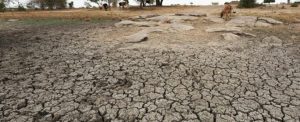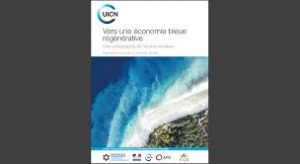Today’s Current Affairs: 3rd May 2024 for UPSC IAS exams, State PSC exams, SSC CGL, State SSC, RRB, Railways, Banking Exam & IBPS, etc
Table of Contents
Walrus Death From Bird Flu In Arctic:

A researcher from the Norwegian Polar Institute, Christian Lydersen, reported the first case of a walrus dying from bird flu on Hopen Island in the Svalbard archipelago.
- Around six dead walruses were found in the Svalbard islands, located 1,000 kilometres away from the North Pole.
- Tests conducted at a German laboratory confirmed the presence of the bird flu virus in the walrus, although it was unclear whether it was the H5N1 or H5N8 strain.
- The discovery has raised concerns among researchers, as walruses tend to congregate during the summer when the ice melts.
- While bird flu primarily spreads through avian hosts like ducks and geese, mammals can also become infected by consuming infected birds.
- There have been previous cases of sea lions and fur seals also falling victim to the disease.
- There is also a risk of a polar bear consuming an infected walrus corpse, as bird flu has already killed one polar bear in Alaska.
- Researchers urge for continued monitoring of the situation to prevent further spread of the virus among marine mammal populations.
Group Of Seven:

Energy ministers from the Group of Seven (G7) reached a deal to shut down their coal-fired power plants by 2035.
- The agreement on coal marks a significant step in the direction indicated last year by the COP28 United Nations climate summit to phase out fossil fuels, of which coal is the most polluting.
- The Group of Seven (G7) is an intergovernmental political and economic forum that brings together seven of the world’s advanced economies.
- These countries include Canada, France, Germany, Italy, Japan, the United Kingdom, and the United States.
- Additionally, the European Union (EU) is considered a “non-enumerated member” of the G7.
- The forum is organized around shared values of pluralism, liberal democracy, and representative government.
- The G7 originated from an ad hoc gathering of finance ministers in 1973.
- Over time, it has evolved into a formal and high-profile venue for discussing and coordinating solutions to major global issues.
- These issues span areas such as trade, security, economics, and climate change.
Inheritance Tax:

A prominent political leader of India’s opposition party has expressed interest in the proposed legislation on Inheritance Tax.
- There has been a lot of discussion about using inheritance tax as a tool for redistribution of wealth to address Income Inequality in India.
- Inheritance tax is a tax paid for inheriting a property or asset from a deceased person.
- It is levied on the value of the inheritance received by the beneficiary, and it is paid by the beneficiary.
- Depending on the country, it can be as high as 55%.
- A person can receive inheritance either under a Will or under the personal law of the deceased.
- In India, the concept of levying tax on inheritance does not exist now.
- The first step is to determine the total value of assets.
- This involves assessing the value of all assets owned by the deceased, including real estate, investments, bank accounts, vehicles, and personal belongings, while also considering any outstanding debts or liabilities.
- Whether or not inheritance tax applies depends on several factors, including the total value of the estate and the laws of the jurisdiction.
- In some places, certain beneficiaries, such as spouses or children, may be exempt from paying inheritance tax or may receive a reduced tax rate.
State Of The Climate In Asia : Report

Asia has warmed faster than the global average since 1960, the World Meteorological Organisation’s 2023 ‘State of the Climate in Asia’ report has said.
- According to the report, released on April 23, the Asian continent is struggling with extreme climate events like floods and heatwaves, with record-breaking temperatures and precipitation reported across its countries.
- More than 2,000 people were killed and more than nine million were affected by extreme climate events across Asia in 2023. More than 80% of these events were related to storms and floods.
- The report recorded several parts experiencing severe heat waves, leading to multiple fatalities, but acknowledged that heat-related mortality is widely underreported.
- In India, severe heat waves in April and June killed around 110 people by heat stroke (a condition in which the body temperature increases beyond 40 degrees C).
- In India, floods and landslides in August 2023, primarily in Himachal Pradesh and Uttarakhand, killed at least 25 and damaged a lot of infrastructure. Lightning by itself accounted for 1,200 deaths around India through the year.
- Report noted an “alarming gap” between climate projections and the ability of Asian countries to adapt to and mitigate climate change and its impacts.
Regenerative Blue Economy : International Union For Conservation Of Nature

The International Union for Conservation of Nature (IUCN) has released a report outlining a roadmap for a Regenerative Blue Economy (RBE).
- This approach goes beyond mere sustainability, aiming to actively restore and revitalize our oceans.
- The report proposes a hierarchical structure to categorize different interpretations and levels of sustainability within the Blue Economy concept, they are:
- Ocean/Brown Economy: Refers to all economic activities directly or indirectly related to the ocean.
- Synonymous with the traditional “marine economy” or “maritime sectors”.
- Includes sectors like shipping, ports, fisheries, offshore oil/gas, etc.
- Follows a business-as-usual approach focused on economic contribution.
- Sustainable Blue Economy: Incorporates principles of environmental sustainability and ecosystem protection.
- Regenerative Blue Economy: RBE goes beyond simply maintaining ocean health. It aims to actively restore and revitalize marine ecosystems. It is an economic model that combines rigorous and effective regeneration and protection of the Ocean and marine and coastal ecosystems with sustainable, low, or no carbon economic activities, and fair prosperity for people and the planet, now and in the future.
4th Session Of Intergovernmental Negotiating Committee:

The fourth session of the Intergovernmental Negotiating Committee (INC-4) of the United Nations Environment Agency (UNEA) was held in Ottawa, Canada attracting participation from over 170 member states.
- This session is part of the ongoing negotiations to build a legally binding treaty on plastics pollution by the end of 2024 under UNEA.
- The INC-4 for a global plastics treaty failed to reach an agreement. Negotiators aim to reach a consensus by the end of 2024 at INC-5 which is scheduled for November 2024 in South Korea.
- The INC is a committee established by the United Nations Environment Programme (UNEP) in March 2022 to develop an international legally binding agreement on plastic pollution.
- The INC’s mandate is to develop an instrument that addresses the entire life cycle of plastic, including in the marine environment, and could include both voluntary and binding approaches.
- The INC-1 started in November 2022 in Punta del Este, Uruguay.
- The INC-2 occurred in May-June 2023 in Paris, France.
- The INC-3 convened in Nairobi in December 2023.
Street Vendors Act:

The Street Vendors (Protection of Livelihood and Regulation of Street Vending) Act, 2014 celebrated its tenth anniversary, signifying a culmination of four decades of legal evolution and advocacy by street vendor movements in India.
- The Act was designed to protect and regulate street vending across Indian cities, involving local authorities in establishing designated vending zones.
- Vendors are crucial to urban life, contributing to food distribution and cultural identity, and the law aims to secure their livelihoods and integrate their activities into formal urban planning.
- The Act establishes Town Vending Committees (TVCs), which include street vendor representatives, with women vendors constituting 33% of this group.
- These committees are responsible for the inclusion of vendors in designated zones and handling grievances through mechanisms like the Grievance Redressal Committee (chaired by a civil judge or judicial magistrate).
- The Act clearly defines the roles and responsibilities of vendors and government at different levels.
- The provision requires States/ULBs to conduct a survey to identify SVs at least once every five years.
Kutch Ajrakh:

The Controller General of Patents, Designs, and Trademarks (CGPDTM) has bestowed the Geographical Indication (GI) certificate upon the traditional artisans of ‘Kutch Ajrakh,’ hailing from the vibrant region of Kutch in Gujarat.
- The Ajrakh is a textile craft, holds deep roots in the cultural tapestry of Gujarat, particularly in the regions of Sindh, Barmer, and Kutch, where its legacy spans millennia.
- The art of Ajrakh entails a meticulous process of hand-block printing on treated cotton cloth, culminating in intricate designs infused with rich symbolism and history.
- Ajrak’s nomenclature originates from ‘Azrak’, meaning indigo, a well-known substance most often employed as a powerful dye to achieve a bluish effect.
- Ajrakh prints have traditionally consisted of three colors: blue which signifies the sky, red which signifies the land and the fire, and white which signifies the stars.
- Textiles are treated with vegetable and mineral colours and the fabric goes through a washing cycle about eight times.
- This craft was introduced to this region over 400 years back by the Sind Muslims.
- Nomadic pastoralist and agricultural communities like the Rabaris, Maldharis, and Ahirs wear Ajrakh printed cloth as turbans, lungis, or stoles.
Supersonic Missile-Assisted Release Of Torpedo (SMART) System:

The Defence Research and Development Organisation (DRDO) tested a next-generation torpedo release system.
- Supersonic Missile-Assisted Release of Torpedo (SMART) System has been designed and developed by the Defence Research and Development Organisation.
- It was launched from a ground mobile launcher from the Dr APJ Abdul Kalam Island off the Odisha coast.
- This missile-based mechanism to launch lightweight torpedoes can target submarines hundreds of kilometres away far beyond the conventional range of lightweight torpedoes.
- It will be particularly employed in the absence of other assets for immediate action when an enemy submarine is detected.
- It is the canister-based missile system comprises several advanced subsystems including two-stage solid propulsion and precision inertial navigation.
- It carries an advanced lightweight torpedo missile as a payload along with a parachute-based release mechanism.
- Several state-of-the-art mechanisms, such as symmetric separation, ejection and velocity control, have been validated with this test.
Antares:

The Bengaluru-based Indian Institute of Astrophysics (IIA) has filmed the passing of the moon in front of Antares, a bright red star.
- Antares, also known as Alpha Scorpii, is the alpha, or brightest, star in the constellation Scorpius, and the 15th-brightest star in the whole night sky.
- It is a massive red supergiant star. It is 10,000 times brighter than our sun.
- It is one of the largest known stars, 700 times the sun’s diameter, large enough to engulf the orbit of Mars if the solar system were centered on it.
- Despite its size, the overall density of Antares is less than one-millionth that of the sun.
- Antares is also relatively cool as stars go. Its surface temperature is about 6,100 degrees F (3,400 degrees C).
- That’s in contrast to our sun’s surface temperature of about 10,000 degrees F (5,500 degrees C).
- The star’s low temperature accounts for its ruddy color.




